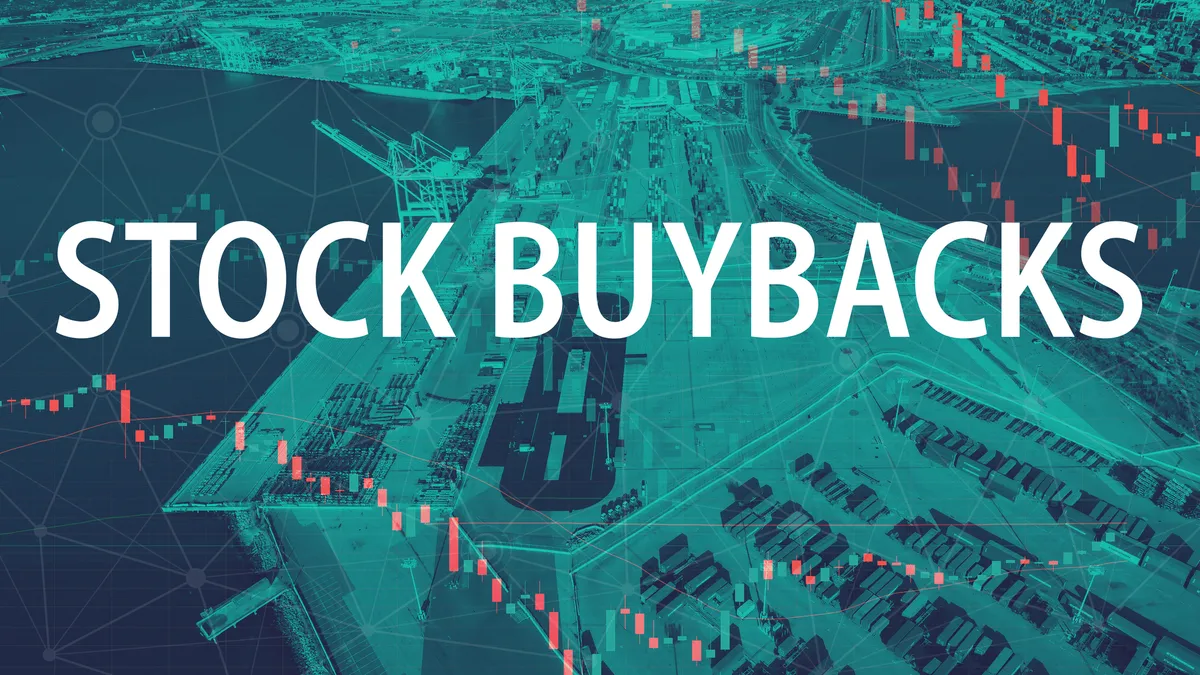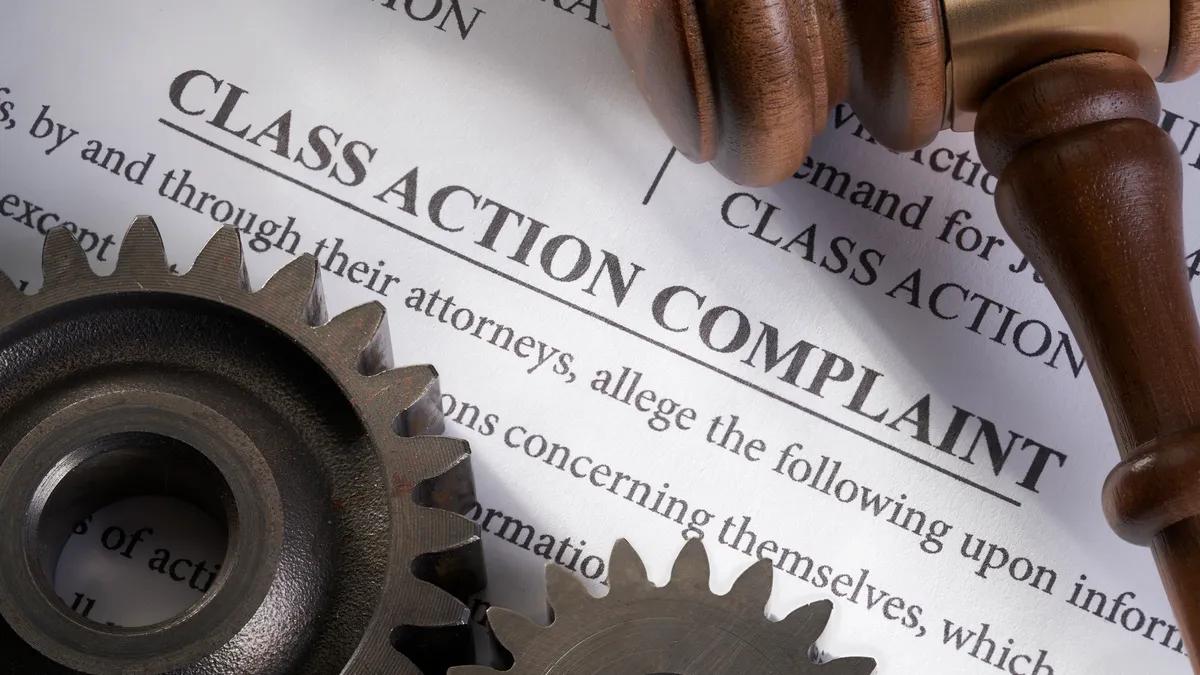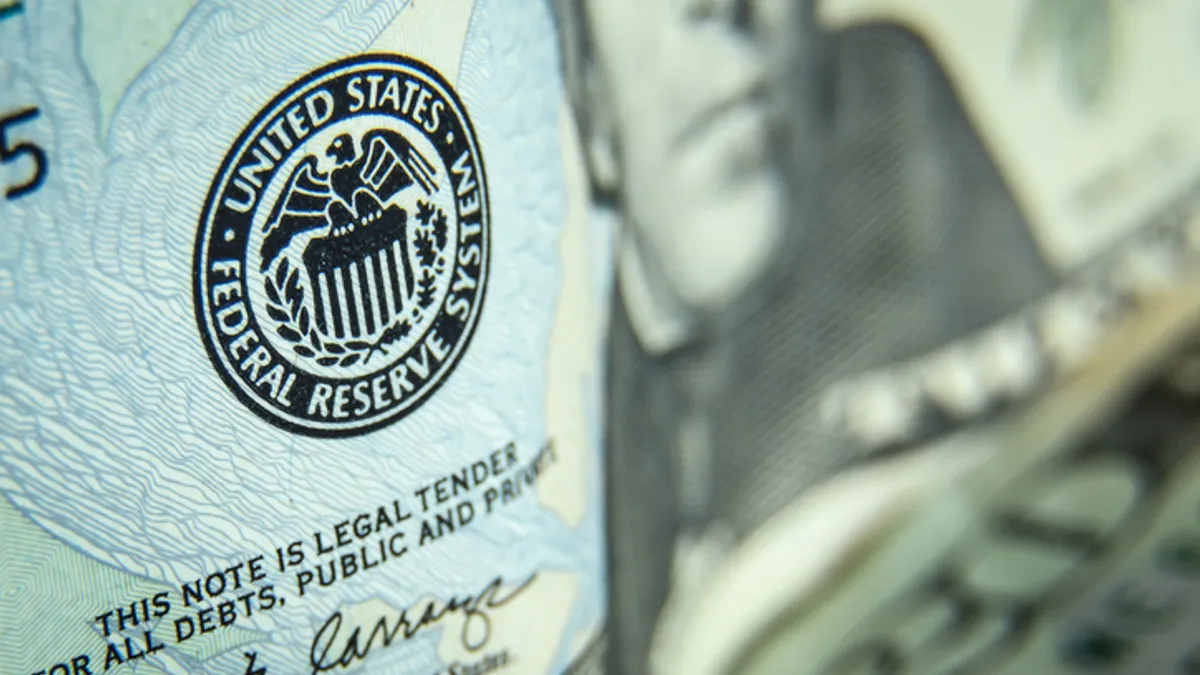Stock buybacks reached a record in the last quarter and are on track to reach another record even as Congress signals its concern that companies aren’t reinvesting as much money as they could in talent and productive capacity.
Buybacks tracked by the S&P Dow Jones Indices hit $234.5 billion in the third quarter, The Wall Street Journal reported. That’s the latest in a string of increases since the second quarter of 2020, when the onset of the pandemic led to a record drop in buybacks to $88.7 billion as companies conserved cash.
The Association for Financial Professionals' cash index showed big jumps in company cash holdings beginning the second quarter of 2020 before easing up a bit in early 2021, while at the same time, other indicators during that period were showing companies either decreasing or suspending dividends.
Ready to spend
Even with the uncertainties of the omicron Covid variant, companies appear to have put their cash-hoarding days behind them.
Among the companies to approve big stock repurchases in recent quarters are Microsoft, whose board approved repurchases of $60 billion in stock, and Hertz, whose board approved $2 billion.
Look for companies to push up buybacks to a record $236 billion in the fourth quarter, Howard Silverblatt, a senior index analyst at S&P Dow Jones Indices, told the Journal.
Self-reinforcing cycle
The accelerating pace of buybacks is one of the reasons the stock market has largely held strong despite the persistence of Covid and the rise of inflation, among other things to hit the global economy, that would otherwise put a damper on values.
"You basically see that it's now still in historically high levels," Itay Goldstein, professor of finance and economics at the University of Pennsylvania's Wharton School of Business, said in reference to the cyclically adjusted price-to-earnings (CAPE) ratio, an indicator of potentially over-exuberant stock values. "If you go back in history, it was higher than that only around 2000 before the big crash of the Dotcom bubble.”
Because investors tend to see buybacks as a company’s vote of confidence in itself, since management wouldn’t initiate a repurchase program unless they felt their shares were undervalued, investors often help drive further share price increases by upping their holdings in the company after buybacks.
“It’s always comforting to have a management team come in and tell you how undervalued they think their shares are,” Anne Wickland, a portfolio manager at Easterly Investment Partners, told the Journal. “It’s a vote of confidence in the longer-term outlook.”
Congressional concerns
The trend, though, flies in the face of an effort by lawmakers in Congress to get companies to plow their cash into increased productive capacity rather than enrich investors by reducing equity dilution, which is one of the effects of buybacks.
The $2 trillion Build Back Better bill passed by the House last month includes a 1% tax on companies’ share repurchases. The provision is a scaled-down version of a bill introduced in the Senate earlier this year that would impose a 2% tax on repurchases.
“It’s past time Wall Street paid its fair share and reinvested more of that capital into the workers and communities who make those profits possible,” Sen. Sherrod Brown (D-Ohio) said when he co-sponsored the buyback tax bill in September. Sen. Ron Wyden (D-Ore.), chair of the tax-writing Finance committee, is also a co-sponsor.
Given hurdles Build Back Better faces in the Senate, it’s likely the 1% version of the tax, rather than the 2% version, will prevail in any final bill, if the tax remains at all. If that’s the case, the bill is expected to have little impact on repurchases, analysts believe.
“The 1% tax on buybacks is so low that I don’t think it will impact anything,” Olivier Sarfati, head of equities at wealth-management firm GenTrust, told the Journal.
In any case, with supply-chain and talent constraints persisting across sectors, companies are unlikely to pick up the pace of production reinvestment anytime soon. CFOs say they’re already investing as much as they can in talent, new facilities and other productivity measures. There simply isn’t the capacity to invest more, no matter how much lawmakers want them to, many say.
“We’re investing as much as the company can absorb,” Dave Denton, CFO of home-goods store Lowes, has said. “There [are] only so many projects that we can take on.”




















